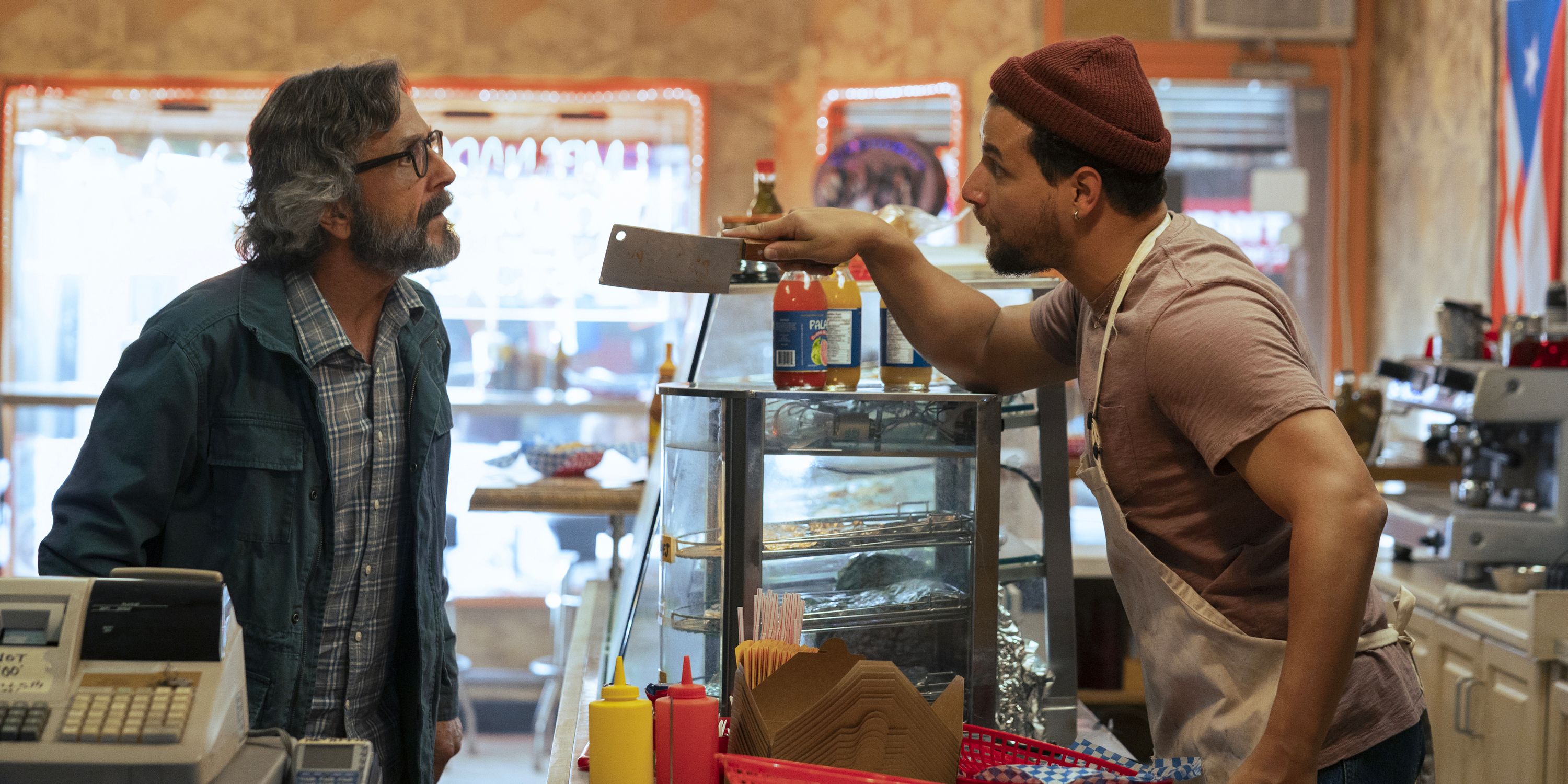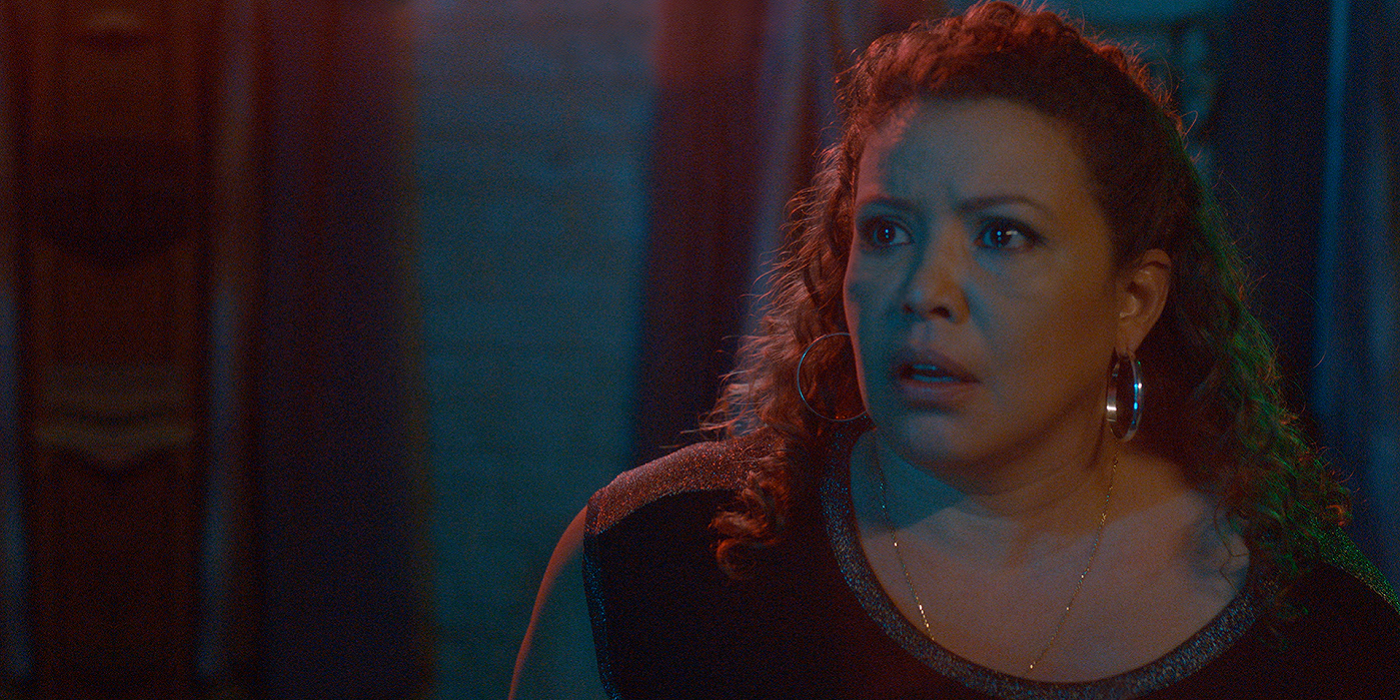Warning: Contains SPOILERS for The Horror of Dolores Roach finale.Now available to stream on Prime Video, The Horror of Dolores Roach tells the tale of a woman who is forced to go to extreme lengths to survive. Dolores’ relatability causes viewers to root for her throughout the show’s eight episodes and even manages to make her killing spree feel like a mishap rather than an intentionally malicious act. With all bridges burned, and no place left to call home, Dolores flees Washington Heights in the finale’s final moments, putting an end to the tale that she’s been narrating since the pilot. However, the episode only concludes once Dolores seemingly finds Dominic and enacts her revenge.
The Horror of Dolores Roach is based on the Spotify podcast of the same name and was created by Aaron Mark. Mark adapted the series for television and serves as the show’s writer and executive producer. Justina Machado stars as Dolores Roach and is most well-known for her leading role in One Day at a Time. Meanwhile, Alejandro Hernandez, who plays her partner in crime, Luis, recently wrapped on the final season of NBC’s medical drama, New Amsterdam. The cast also includes Kita Updike, K. Todd Freeman, Ilan Eskenazi, Jeffery Self, and Jean Yoon.
Aaron Mark chats exclusively with FilmmakerFocus about Dolores’ complicated feelings for Luis, her genuine relationship with Nellie, and his own hopes for a season 2.
Aaron Mark Talks The Horror of Dolores Roach
FilmmakerFocus: You went from making a podcast to filming a TV show, which is an entirely different ballgame. What has this process been like?
Aaron Mark: The process has been quite a journey. I wrote the play ten years ago this summer, and then developed the play in New York for two full years before we did the Off-Broadway production in 2018. It happened in a really crazy way because after we did the play Off-Broadway, I had come out to LA to pitch the television version of the play. And people thought I was out of my mind. It was really, I think, not the moment for people to receive that idea.
But I had all this material that was to be the serialized version of Dolores’ story, and Mimi O’Donnell, who had run the Labyrinth Theater Company and produced the play Off-Broadway, brought the project to Gimlet, and we made the podcast. So the irony of all of this is that when the podcast came out, suddenly there were all these people interested in doing the TV version of Dolores’ story, which I had tried to do in 2016. So it’s been a very windy, bizarre, surreal, fantastic process that really could not have happened any other way, I think.
Since there are multiple different versions of this story, did you want them all to mirror each other in some way? Or did you want to make them unpredictable for those who haven’t seen the other formats?
Aaron Mark: Oh, that’s a great question. That is top of mind for me really every day throughout this process, and in a different way throughout the podcast process. It was really important that this television iteration was both true to the essential DNA of the piece. I think, for those who saw the play and for those who heard the podcast, or even for those who haven’t, it is the same character. It’s the same project. And yet, I didn’t want to make for television, simply a visualization of what we had done for audio. I absolutely want to surprise people who think they know what they’re in for. It’s a slightly different menu of victims if you will. We have some new characters for the television version. There are some twists and turns. We want to keep people on their toes.
When I spoke to Kita [Updike], she mentioned that she was involved in the podcast. How did that work out with casting? Did you just want to bring her over to the show?
Aaron Mark: She’s the only cast member from the podcast who came with us to television, and the podcast cast is unbelievably great. I pinch myself every day. The cast of the podcast and…
The cast for the television show is absolutely extraordinary. We knew from the start that the television version would have a completely different cast. Daphne, who is both a writer and producer on the show, wanted to focus on those roles, so we brought in Justina. We were incredibly lucky to have Justina play Dolores on TV. She is truly unbelievable. We knew we wanted to surround her with a fresh new cast. And when Kita auditioned, she blew us away. She was so fantastic and had been so involved in finding the character for the podcast that it felt right to bring her on board. She became the connective tissue between the two versions.
Dolores narrated her story for the TV show, and we even referenced the podcast and the play. This creative choice was made because the show is really unique in that Dolores is in every scene. It’s rare to see that on television. We wanted the audience to identify with her character and see that she’s not just some othered serial killer. She’s someone who, under certain circumstances, we could all relate to. The goal of the show is to walk the viewer through that journey and make them realize that they are also Dolores. To achieve this, we have Dolores guide us through her story via voiceover, creating a sense of trust and intimacy between her and the audience.
Overall, the television adaptation of Dolores Roach is a captivating and immersive experience that will leave viewers hooked from start to finish.
What was your intention behind the relationship with Dolores and Luis? I thought it was extremely interesting. It seemed like she genuinely did care for him at times, but at other times, she didn’t want anything to do with him.
Aaron Mark: Thank you for that question. Their relationship is so…it’s quite a relationship. I think at times, she wonders if she does genuinely have romantic feelings for him, and I think at times she does. Absolutely there’s a love there for this guy. And I think, frankly, not to get too sort of heady about it, I think Dolores is replicating a dynamic that she had with Dominic, and then with Tabitha. Here she is with this guy who says, “I don’t care how many people you kill, I will love you, and I’ll make it all okay,” and that’s irresistible to her. The world has turned on her.
The people that she loved most dearly, and the people that she trusted most implicitly have abandoned her. And here’s this guy saying, “I truly don’t care what you have done. I don’t care what I have to do to prove that. I’ll do it.” In a way, that’s Dolores’ Achilles’ heel. They’re so symbiotic and perfect for each other in so many ways, and it cannot last. I mean, they’re so disruptive. And my God, the chemistry between Justina and Alejandro is unreal. That’s the kind of chemistry, as a producer, as a creator, you just pray that two actors have that kind of chemistry. They completely locked into the nuance of that, and the love-hate, repulsion-attraction, and codependence.










